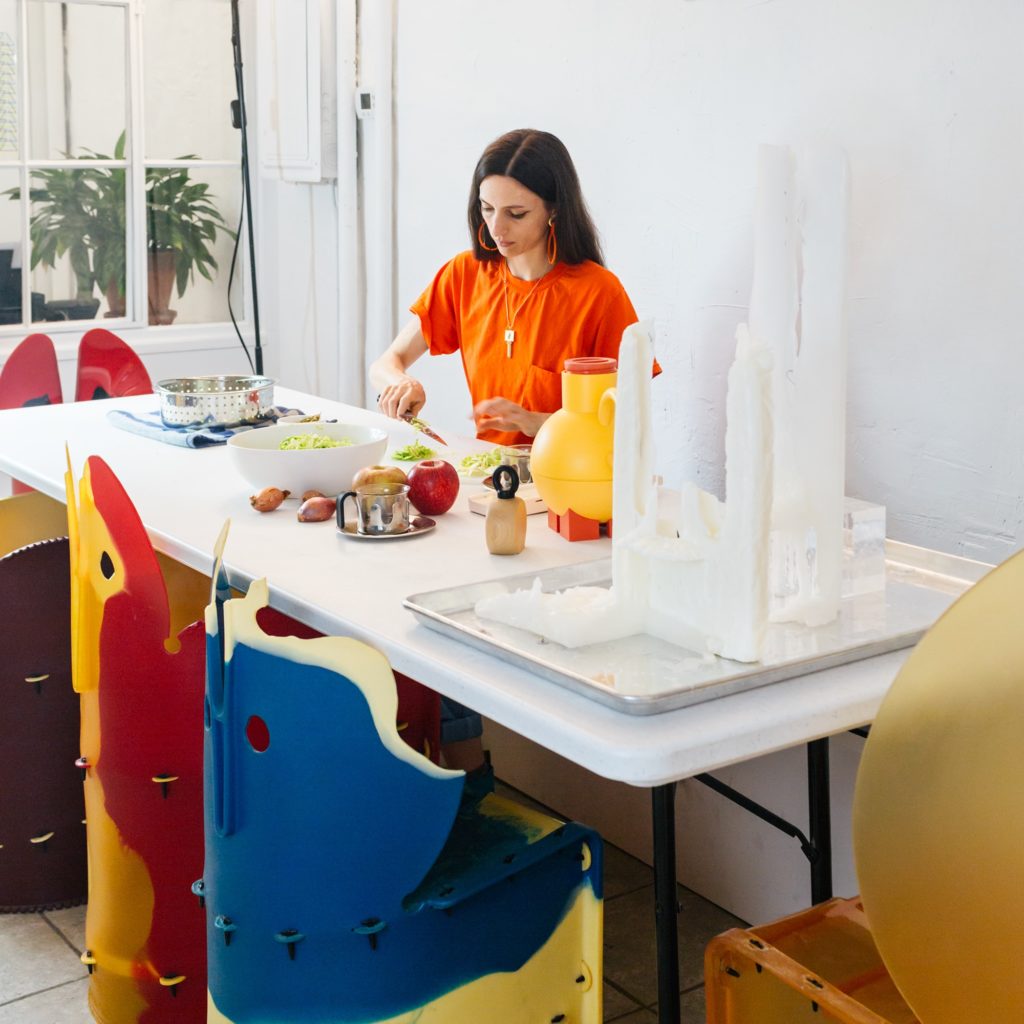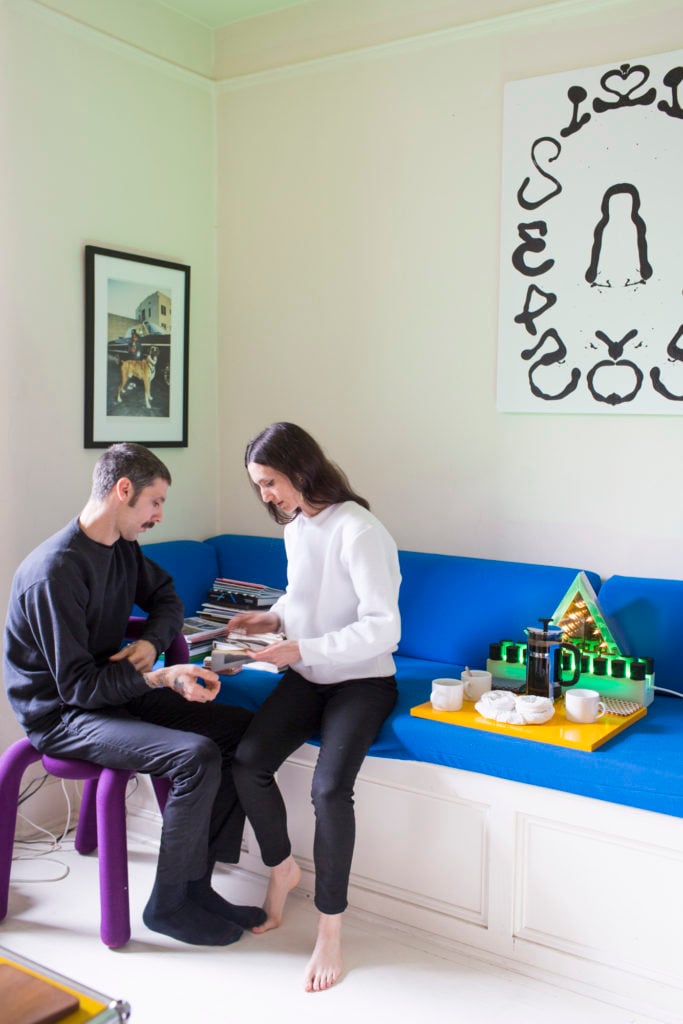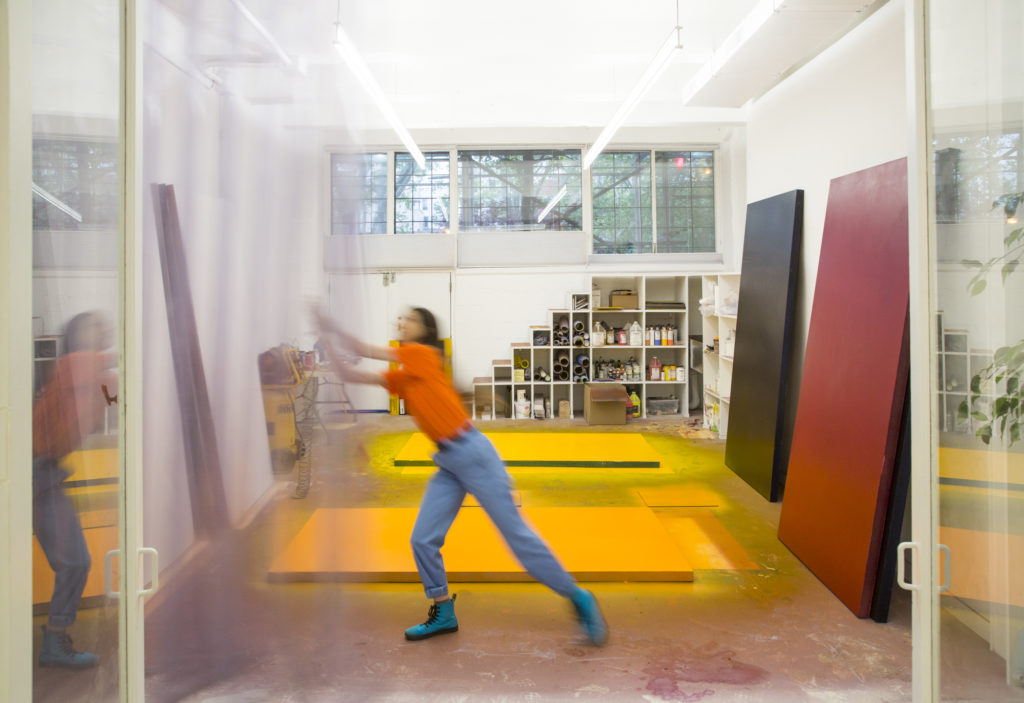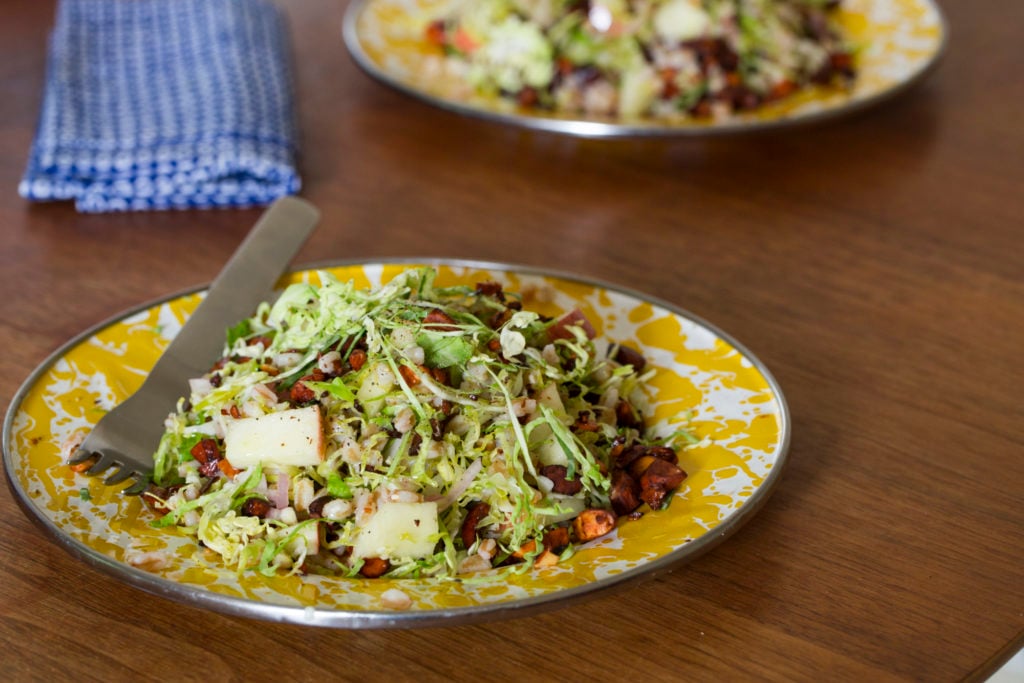Art World
Art Star Tauba Auerbach Trashes Flippers—and Makes a Tasty Salad—in a Saucy New Cookbook
A cruelty-free salad comes with some harsh words for opportunistic collectors.

A cruelty-free salad comes with some harsh words for opportunistic collectors.

Sarah Cascone

A cookbook might not be where you’d except to find a hard-hitting interview about the art market and the evils of flipping, but that’s exactly what you’ll discover halfway through Salad for President, the newly released book by Brooklyn-based artist, photographer, cook, and gardener Julia Sherman.
While making a cruelty-free vegan salad, painter Tauba Auerbach was surprisingly candid with the author about the pitfalls of her sudden success, and about what the experience taught her.
Tauba Auerbach: When I started having shows, I was as green as a person can be, and I’ve had some painful learning experiences. I was just kind of feeling my way along, figuring it out as I went, and then suddenly people went nuts over a certain series of my paintings. A few months later, my New York gallery announced that it was closing. Then the craziness began.
Julia Sherman: How so?
TA: I received creepy mail at my house and threatening emails from collectors who couldn’t get paintings. Basically, I just saw a lot of people wielding the power of their wealth in unkind and destructive ways.
JS: Why was this happening? What caused the frenzy?
TA: One reason was that I had kept my prices much lower than they could have been, as some kind of misguided gesture of sincerity. I wanted it to be clear that I was making art for the right reasons, not to get rich. But people saw an opportunity to flip my work for huge profits, and it slowly became evident that my strategy had encouraged the greed I had intended it to stand against. It also created an instance of great wage disparity—as the artist, I had done all the work, but the flippers were making twenty to one hundred times as much as I was. Eventually I decided to get over my embarrassment at the fact that people were willing to pay a lot for my paintings, and just use the opportunity to treat my employees well and support causes I believe in.
J: Why is it embarrassing to know that people value your work, and that they are willing to pay for it?
T: I worried that people were valuing my work for reasons I don’t agree with.
The interview, accompanied by a recipe for shredded brussels sprouts salad, is just one of the artist interludes in Salad for President, which also features William Wegman talking Weimaraners and a sweet and nutty Passover-inspired salad, and Laurie Anderson sharing her roasted eggplant dip and pile of herbs.

Tauba Auerbach drinking coffee with photographer Lele Saveri. Courtesy of Julia Sherman, Salad for President.
Sherman has hit upon a unique take on the traditional cookbook, interviewing and cooking with an artist for each of the volume’s creatively divided sections (think “F*%k Brunch” for salads to start your day off right, and “Salad on the Rocks: Cocktails, Soups, Desserts, and Other Abuses of the Format”).
Before Salad for President was a book, it was a blog, founded in 2011, after Sherman completed her MFA in New Genres at New York’s Columbia University. Her early success there led to her running a salad garden—with salad parties—on the roof of New York’s MoMA PS1 in 2014, and at the Getty Center in Los Angeles in 2016.
In an email to artnet News, Sherman called Auerbach’s “a potent cautionary tale of how the art market can burn a young artist… Looking back on it now, I don’t think I was ever well-suited to making work for the commercial art market—I am better at selling my ideas than discrete works of art.”

Tauba Auerbach in her studio. Courtesy of Julia Sherman, Salad for President.
Today, Sherman doesn’t have a studio practice, but she finds her collaborative salad-making is participatory and experimental in much the same way as her earlier art projects.
“I have always used the idea of ‘making things’ as a way to facilitate conversation, to ease into a dialogue starting with a shared experience. So, in that way, I don’t feel like much about my process has changed,” Sherman says. “The structure of Salad for President has me surrounded by artists, in a supportive role. I am no longer in competition with my peers, just in a place to celebrate what they do. ”

Tauba Auerbach’s Shredded Brussels Sprouts Salad With Lemony Almonds and Shaved Apple. Courtesy of Julia Sherman, Salad for President.
For the almonds
¼ cup (105 g) whole raw almonds
Grated zest and juice of 1 small lemon
½ teaspoon fine sea salt
1 tablespoon olive oil
For Julia’s dressing
¼ cup (30 g) thinly sliced shallot
2 tablespoons sherry vinegar
1 tablespoon plus 1 teaspoon cider vinegar
2 teaspoons Dijon mustard
1 teaspoon maple syrup
5 tablespoons (75 ml) extra-virgin olive oil
For the salad
4 cups (370 g) trimmed and thinly shaved Brussels sprouts
½ teaspoon sea salt
1 medium, firm, sweet apple, such as Gala, Fuji, Jazz, or Cameo
1 cup (200 g) cooked farro
2 teaspoons Pickled Mustard Seeds (optional)
¼ cup (13 g) loosely packed fresh chervil leaves
Freshly cracked black pepper